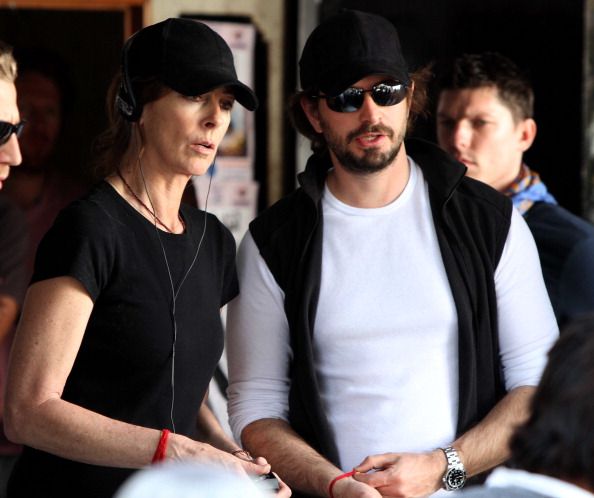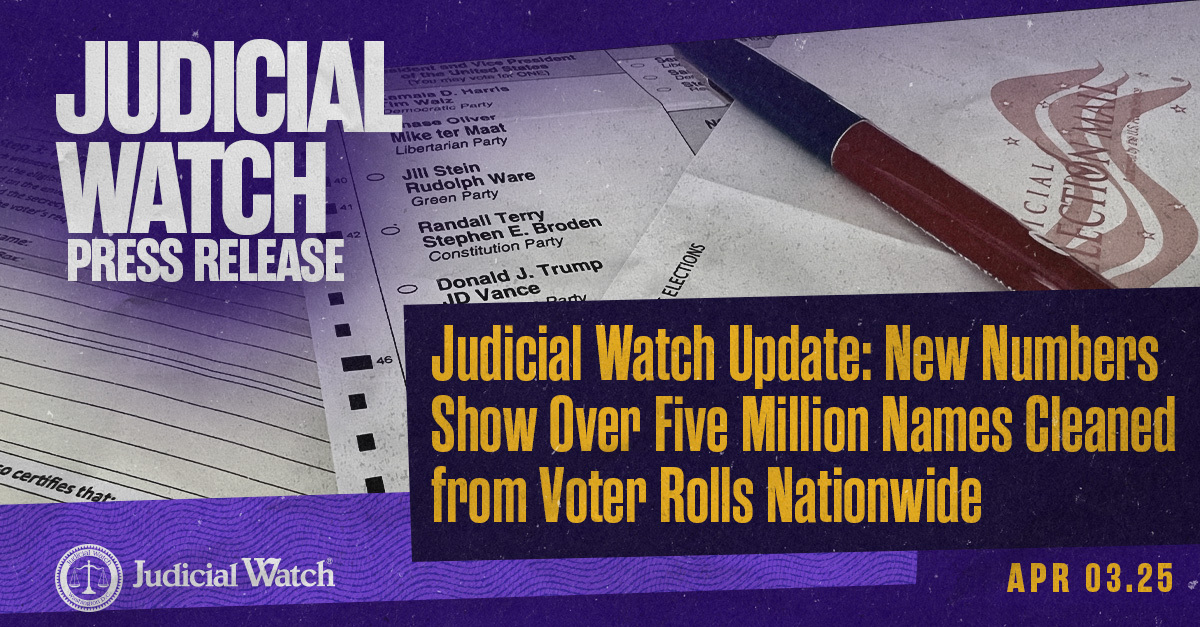
Obama Admin Admits Info Released to Zero Dark Thirty Filmmakers Might Pose a ‘security and counterintelligence risk’

Judicial Watch announced today that Obama administration officials disclosed in sworn court documents that sensitive information released tothe filmmakers for the upcoming film on the bin Laden raid, Zero Dark Thirty, could cause an “unnecessary security and counterintelligence risk” if released to the public. The admissions, made during the course of Judicial Watch Freedom of Information Act (FOIA) lawsuit seeking records pertaining to cooperation between Obama administration officials and director Kathryn Bigelow and screenwriter Mark Boal in preparation for the film, raise questions about the public statement to reporters by Obama White House spokesman Jay Carney regarding the controversy: “We do not discuss classified information.” The government claims that the information shared is not necessarily classified “in isolation.”
“The government cannot have it both ways in this case,” Judicial Watch argued in a countermotion for summary judgment filed with the court on November 12, 2012. “If this information were very sensitive, it would not have been shared with the filmmakers. Since the government did share the information with the filmmakers, the court should conclude that it is necessarily not sensitive … Assisting to make a movie about government accomplishments is not a necessary or important governmental function. If it were, the term for it would be political propaganda.”
JW previously obtained records from the Department of Defense (DOD) and the CIA regarding meetings and communications between government agencies and Kathryn Bigelow, the Academy Award-winning director of The Hurt Locker, and screenwriter Mark Boal in preparation for Zero Dark Thirty. According to the records, the Obama administration sought to have “high visibility” into bin Laden related projects, and granted Boal and Bigelow unusual access to agency information in preparation for their film, now scheduled for release in mid-December. The disclosures made to the filmmakers are now part of an investigation by the DOD Inspector General.
The DOD and the CIA have continued to withhold information concerning the names of five CIA and military operatives involved in the bin Laden operation, which were shared with the filmmakers. Judicial Watch has identified the precise emails containing the information it wishes to obtain, and in sworn declarations Obama administration officials conceded that this information was provided to Bigelow and Boal.
Mark Herrington, Associate Deputy General Counsel, testified that the military officers’ “identities would be threatened” if publicly disclosed but admitted that Under Secretary of Defense Mike Vickers released one of the names to Mark Boal.
According to sworn testimony from CIA Information Review Officer Martha Lutz, releasing of this type of information could provide an “unnecessary security and counterintelligence risk”:
Nonetheless, I can represent to the Court that the absolute protection for officers’ identities that Congress provided in the CIA Act is extremely important to the functioning of the Agency and the safety and security of its employees. This is true even for the identities of officers who are not undercover, and it is also true with respect to the first names of undercover officers. While such identifying information may not be classified in isolation, the widespread public release of this information creates an unnecessary security and counterintelligence risk for the Agency and its officers.
In its brief seeking to deny Judicial Watch access to the names of the CIA operatives, the government asserts that it had protected the operatives’ confidentiality by asking the filmmakers not to share the names. In its cross motion, however, JW responds that the government has provided no evidence that it asked the filmmakers to sign a non-disclosure agreement, or any other contract that would prevent them from sharing the names as required under law. In addition, the government has provided no evidence that either Boal or Bigelow underwent background checks or received security clearances before being provided the information the DOD and CIA now claim is too sensitive for public disclosure.
“The Obama administration now confirms to a federal court that it released sensitive information to help with a film that was set to portray Barack Obama as ‘gutsy.’ If this is true, then the Obama administration was lying to the American people when it said the leaks were no big deal,” said Judicial Watch President Tom Fitton. “The public has a right to get to the bottom of this scandal and the Obama administration should comply with the open records law and disclose the names that were leaked.”
Judicial Watch initially launched its investigation of the filmmakers’ meetings with the Obama administration following press reports suggesting that the Obama administration may have leaked classified information to the director as source material for Bigelow’s film.
In August 2011, New York Times columnist Maureen Dowd wrote that the information leak was originally designed to help the Obama 2012 presidential reelection campaign: “The White House is also counting on the Kathryn Bigelow and Mark Boal big-screen version of the killing of Bin Laden to counter Obama’s growing reputation as ineffectual. The Sony film by the Oscar-winning pair who made ‘The Hurt Locker’ will no doubt reflect the president’s cool, gutsy decision against shaky odds.”
Judicial Watch’s counter motion for summary judgment, filed in the United States District Court for the District of Colombia, petitions the court for an oral hearing on the opposing motions.
















